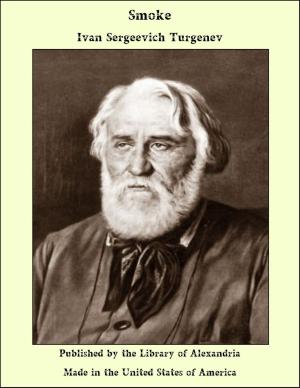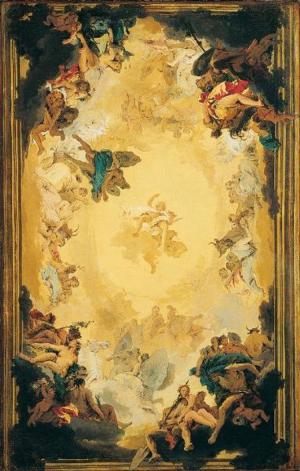History of the Life of Gustavus Adolphus II.: The Hero-General of the Reformation
Nonfiction, Religion & Spirituality, New Age, History, Fiction & Literature| Author: | Harriet Earhart Monroe | ISBN: | 9781465610348 |
| Publisher: | Library of Alexandria | Publication: | March 8, 2015 |
| Imprint: | Language: | English |
| Author: | Harriet Earhart Monroe |
| ISBN: | 9781465610348 |
| Publisher: | Library of Alexandria |
| Publication: | March 8, 2015 |
| Imprint: | |
| Language: | English |
Gustavus Adolphus, the hero general of the Reformation, was born at the royal palace at Stockholm, Sweden, December 9th, 1594, a little more than one hundred years after the birth of Luther, nearly fifty years after his death, and five years before the birth of Cromwell. Washington and Lincoln, as to date of birth, were only seventy-seven years apart; had Washington lived but nine years more, they would have been contemporary. Washington may, in a sense, be said to have made this country, and Lincoln to have preserved it a united people. Just so Luther brought about the movement known as Protestantism, but it was given to this great king of Sweden, known as the Lion of the North, to preserve Protestantism from extinction on the continent of Europe, even as a little later it was given Cromwell to stop that curious movement toward Romanism which is even yet the puzzle of the historian. Gustavus II. was the son of Charles, Duke of Sudermania, youngest son of Gustavus Vasa, who may be considered the founder of the Vasa family. During the entire sixteenth century Sweden was torn by external wars and internal dissensions. Sweden, by the contract of Calmar, in 1397, had become a dependency of Denmark. A trade among rulers had made a brave people the reluctant subjects of an alien power. Gustavus Vasa conceived the project of freeing his country from Denmark. He made one ineffectual attempt, and after severe defeat, pursued by the oppressors, he fled to Delecarlia, whose citizens rallied about him, and, with the help of these sturdy and valiant mountaineers, the Danes were expelled from Sweden and his country was restored to liberty. His grateful countrymen elected him king. Gustavus Vasa saw the moral degradation of his land, and brought disciples of Luther to the country to instruct in both religious and secular learning. Among the most distinguished of these was Olaüs Petri. Of course, the hierarchy of Rome and priests of Sweden made great opposition to any change. Gustavus Vasa reduced the gospel to this simple message, which a child could understand, viz.: "To serve God according to His law; to love God above all; to believe in Jesus Christ as our only Saviour; to study and to teach earnestly the word of God; to love our neighbor as ourselves; to observe the ten commandments." He distinctly said that the Scriptures speak neither of tapers, nor palms, nor of masses for the dead, nor of the worship of saints, but that the Word of God, in many places, prohibited these things. He added, "The sacrament of the Lord's Supper has been given to us as a token of the forgiveness of sin, and not to be carried around in a gold or silver frame to cemeteries and other places."
Gustavus Adolphus, the hero general of the Reformation, was born at the royal palace at Stockholm, Sweden, December 9th, 1594, a little more than one hundred years after the birth of Luther, nearly fifty years after his death, and five years before the birth of Cromwell. Washington and Lincoln, as to date of birth, were only seventy-seven years apart; had Washington lived but nine years more, they would have been contemporary. Washington may, in a sense, be said to have made this country, and Lincoln to have preserved it a united people. Just so Luther brought about the movement known as Protestantism, but it was given to this great king of Sweden, known as the Lion of the North, to preserve Protestantism from extinction on the continent of Europe, even as a little later it was given Cromwell to stop that curious movement toward Romanism which is even yet the puzzle of the historian. Gustavus II. was the son of Charles, Duke of Sudermania, youngest son of Gustavus Vasa, who may be considered the founder of the Vasa family. During the entire sixteenth century Sweden was torn by external wars and internal dissensions. Sweden, by the contract of Calmar, in 1397, had become a dependency of Denmark. A trade among rulers had made a brave people the reluctant subjects of an alien power. Gustavus Vasa conceived the project of freeing his country from Denmark. He made one ineffectual attempt, and after severe defeat, pursued by the oppressors, he fled to Delecarlia, whose citizens rallied about him, and, with the help of these sturdy and valiant mountaineers, the Danes were expelled from Sweden and his country was restored to liberty. His grateful countrymen elected him king. Gustavus Vasa saw the moral degradation of his land, and brought disciples of Luther to the country to instruct in both religious and secular learning. Among the most distinguished of these was Olaüs Petri. Of course, the hierarchy of Rome and priests of Sweden made great opposition to any change. Gustavus Vasa reduced the gospel to this simple message, which a child could understand, viz.: "To serve God according to His law; to love God above all; to believe in Jesus Christ as our only Saviour; to study and to teach earnestly the word of God; to love our neighbor as ourselves; to observe the ten commandments." He distinctly said that the Scriptures speak neither of tapers, nor palms, nor of masses for the dead, nor of the worship of saints, but that the Word of God, in many places, prohibited these things. He added, "The sacrament of the Lord's Supper has been given to us as a token of the forgiveness of sin, and not to be carried around in a gold or silver frame to cemeteries and other places."















